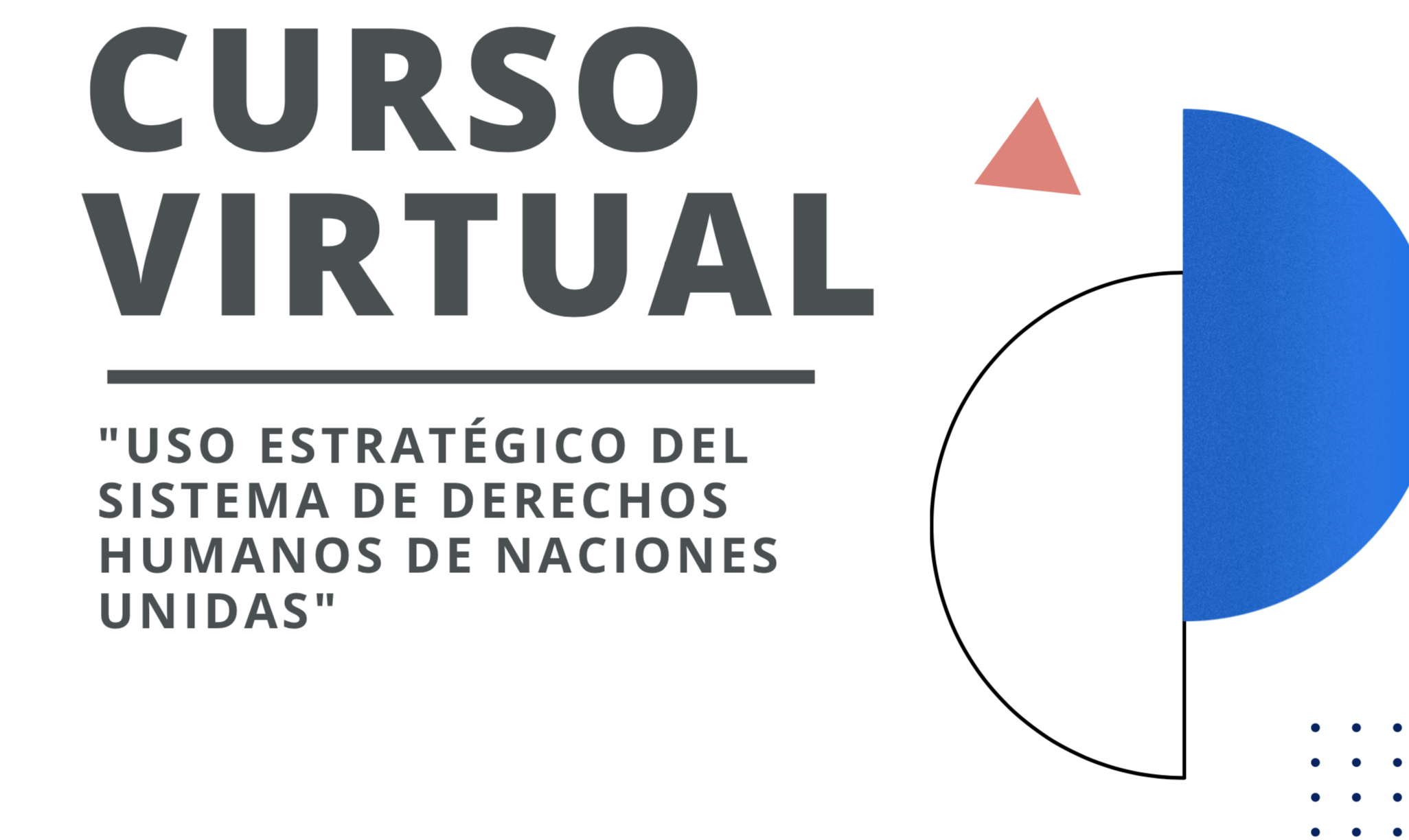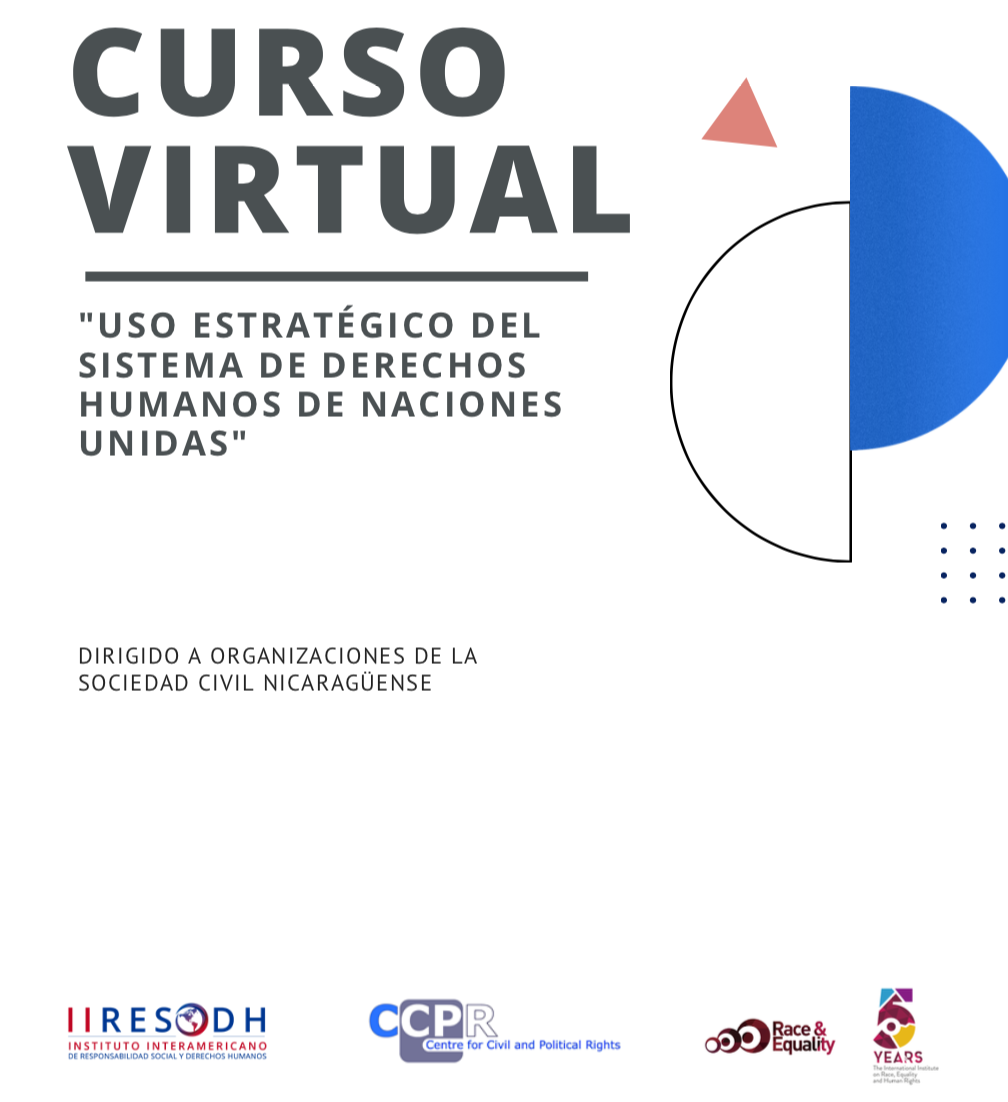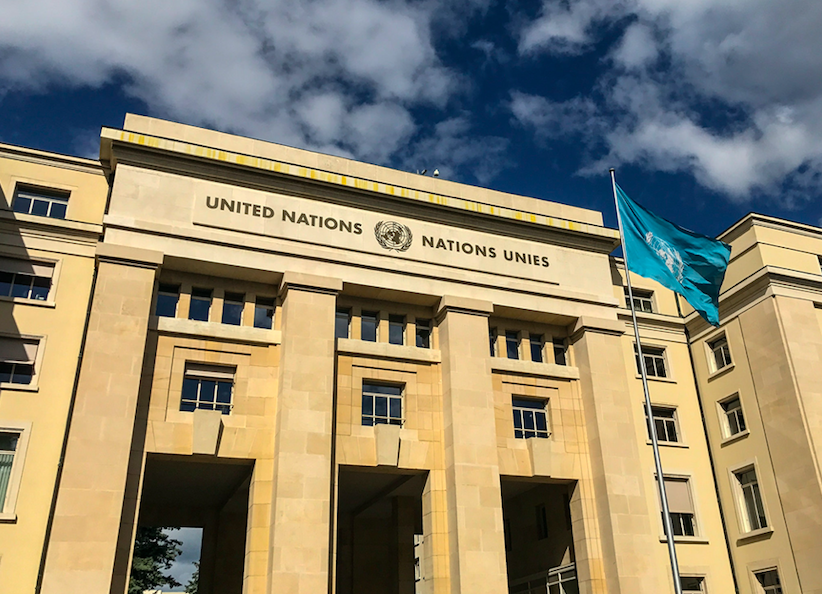Nicaragua continues defying the United Nations: no State delegation at the Human Rights Committee review
Published on 02 Nov 2022, 10:12 AM
Human Rights Committee considers the fourth periodic report of Nicaragua without a State delegation
.jpg) No State delegation in the Human Rights Committee review of Nicaragua’s fourth report
No State delegation in the Human Rights Committee review of Nicaragua’s fourth report
On October 19, 2022, the Human Rights Committee reviewed the fourth periodic report of Nicaragua without a delegation from the State party. Nicaragua submitted its report in 2019, but the State did not submit the replies to the list of issues. The Committee still examined the report and presented its Concluding observations according to art. 68 of the rules of procedure. Moreover, the Chair of the Committee regretted the lack of response of Nicaragua, more concerning given that it also did not engage with the Committee on Economic, Social and Cultural Rights, Committee against Torture, or the Committee on the Elimination of Racial Discrimination.
The absence of a State delegation shaped the nature of the review, in which Committee members could not get any replies to their questions. Still, key issues mentioned by the members included the torture and ill-treatment of persons in detention centers, especially concerning political prisoners, the lack of fair trials and procedural guarantees, restriction of the political participation, and violations of the right to freedom of expression and assembly in Nicaragua.
For the review, the Committee used the information on Nicaragua’s fourth periodic report of 2018 and the information of the Office of the United Nations High Commissioner for Human Rights on Nicaragua, including the reports of 2019 and 2022. They also used all other available United Nations reports, information from civil society and NGOs, and reports and information from the regional human rights system on Nicaragua.
Torture and ill-treatment of political prisoners
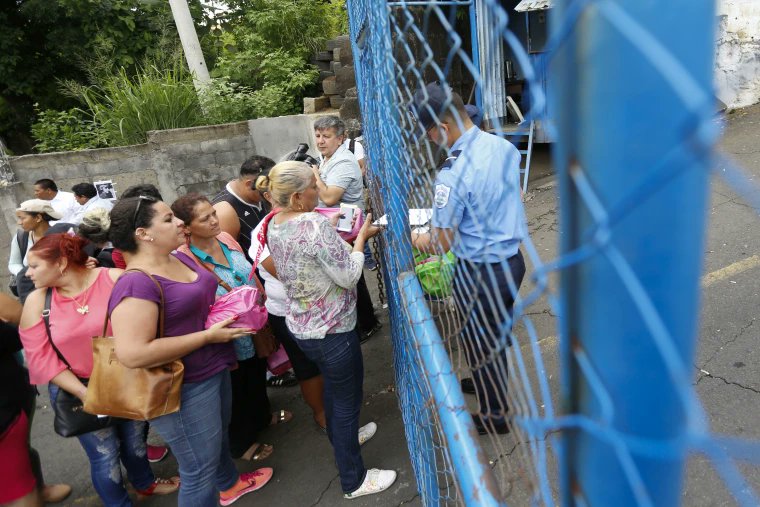 Family members of detained and disappeared protesters in El Chipote jail in Managua, Nicaragua, on June 28, 2018. By Alfredo Zuniga / AP file
Family members of detained and disappeared protesters in El Chipote jail in Managua, Nicaragua, on June 28, 2018. By Alfredo Zuniga / AP file
After the April 2018 protests in Nicaragua, the reports of cases of torture and ill-treatment in prisons have increase strongly. There have been cases of sexual and gender-based violence, including against the visitors of the detainees, and particularly in the detention centers of El Chipote, La Modelo and La Esperanza. Moreover, detained persons are held under critical conditions, including in cells without sunlight, extreme temperatures, poor hygiene conditions, poor food quality, and lacking access to health care. Committee member H. Quezada asked about investigations, criminal proceedings, reparations for victims of torture, and the measures to reduce overcrowding in prisons.
Fair trials and procedural guarantees
There are several cases of authorities systematically manipulating the criminal justice system and using unfounded criminal accusations based on fabricated or without any evidence to hinder the work of human rights defenders, journalists, and political opponents. There are also instances of arrests without warrants, incommunicado detentions for several weeks or months, and interrogations and hearings without defense counsel, which significantly diminishes the independence of the judiciary and the Public Prosecutor's Office.
Freedom of expression and assembly
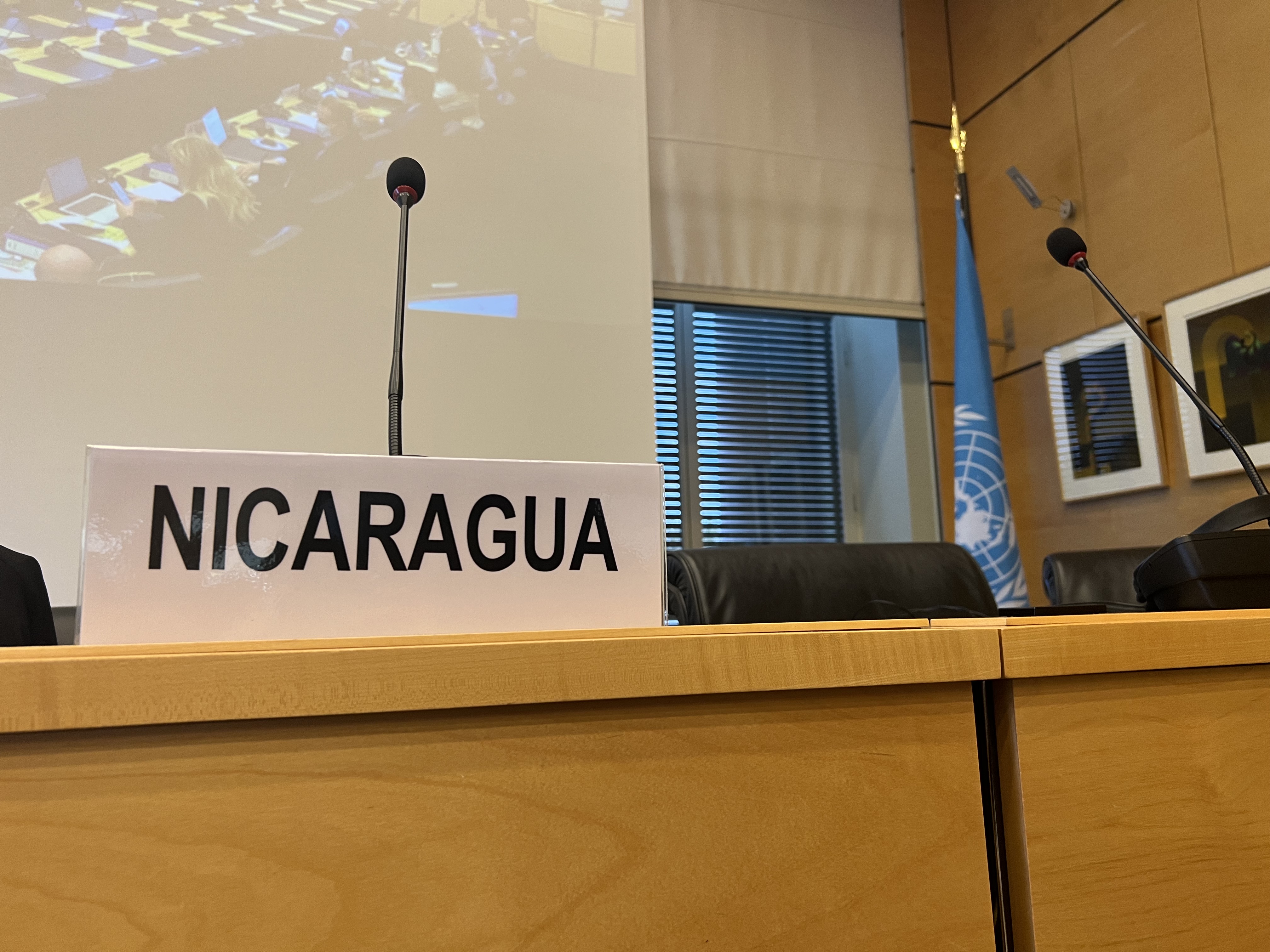 No State delegation in the Human Rights Committee review of Nicaragua’s fourth report
No State delegation in the Human Rights Committee review of Nicaragua’s fourth report
Regarding freedom of assembly, the Law No. 872 of 2014 on the National Police is frequently used to restrict peaceful demonstrations. State repression during demonstrations has led to violations of the right to life, with those responsible for the killings being left impune.
Moreover, on freedom of expression, the instances of arbitrary restrictions and harassment of journalists are widespread. The cases of Miguel Mora and Lucía Pineda from the broadcast 100% Noticias, who were arrested for the alleged incitement to hatred and terrorism, were mentioned, as well as Juan Lorenzo Holmann Chamorro, the manager of La Prensa newspaper, who is serving 9 years in prison. In 2022 alone, 23 radio communication stations were closed down, and hundreds of journalists were exiled.
Watch again the review of the Committee here.
Recommendations of the Human Rights Committee
Concluding Observations on Nicaragua’s fourth periodic report were released on 3 November 2022. The State party is requested to provide, by 2025, information on the implementation of the following recommendations:
Right to a fair trial
In accordance with article 14 of the Covenant and the Committee's General Comment No. 32 (2007) on the right to a fair trial, the State party should:
- (a) Ensure that criminal offenses of "obstruction of justice", "contempt of authority" or "incitement to commit a crime" are compatible with relevant international standards.
- (b) Promote that the Public Prosecutor's Office instigate the immediate release of persons detained as a result of the socio-political crisis that began in 2018 and the unrest surrounding the November 2021 elections, without prejudice that, if appropriate, they be duly prosecuted;
- (c) Ensure that lawyers can advise and represent persons accused of crimes without hindrance, influence, pressure or undue interference from any party, in accordance with the United Nations Basic Principles on the Role of Lawyers.
Participation in public affairs
The State party should ensure that its electoral rules and practices are in full compliance with the Covenant, in particular article 25, by, inter alia:
- (a) Amending Law No. 1070 and Law No. 1116, as well as any other provisions limiting the right to stand for election, in order to ensure their compatibility with the Covenant 1116, as well as any other provision limiting the right to stand for election, in order to achieve compatibility with the Covenant;
- (b) Give full effect to the constitutional right of every citizen to participate in public affairs without discrimination, fostering a culture of genuine political pluralism, and ensure that all political parties are able to conduct an equal, free and transparent electoral campaign;
- (c) Guarantee the full independence of the Supreme Electoral Council, inter alia, by establishing a clear remedy and regulations for filing complaints against any decision, action or omission of that body and making challenges; and
- (d) Take steps to ensure the full participation in political life of members of indigenous and Afro-descendant peoples, inter alia, by conducting a review of the Manual for the Certification of Communal and Territorial Authorities (2020) to ensure that it is in conformity with the provisions of the Covenant.
- (e) Guarantee that any future elections will be free and fair, in the terms of Article 25 of the Covenant, with full respect for the right to vote and to stand for election, and with the presence of international observers.
Here you can find all the recommendations given by the Committee in the Concluding Observations.
The follow-up report of Nicaragua on the implementation of the recommendations is due in 2025. The next list of issues will be adopted in 2028, and the next periodic report is due in 2029.
.jpg) No State delegation in the Human Rights Committee review of Nicaragua’s fourth report
No State delegation in the Human Rights Committee review of Nicaragua’s fourth report



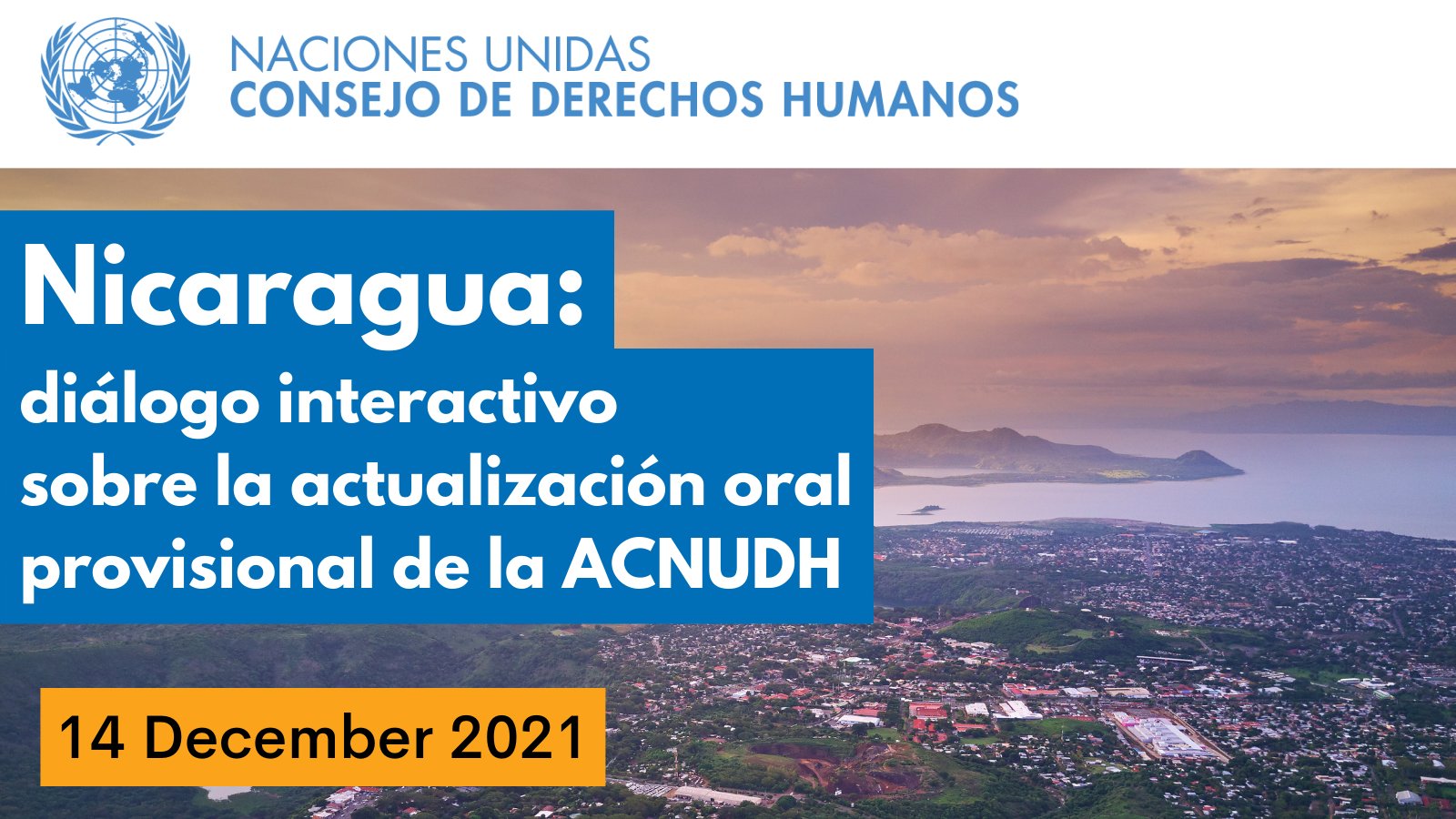
.jpg)

